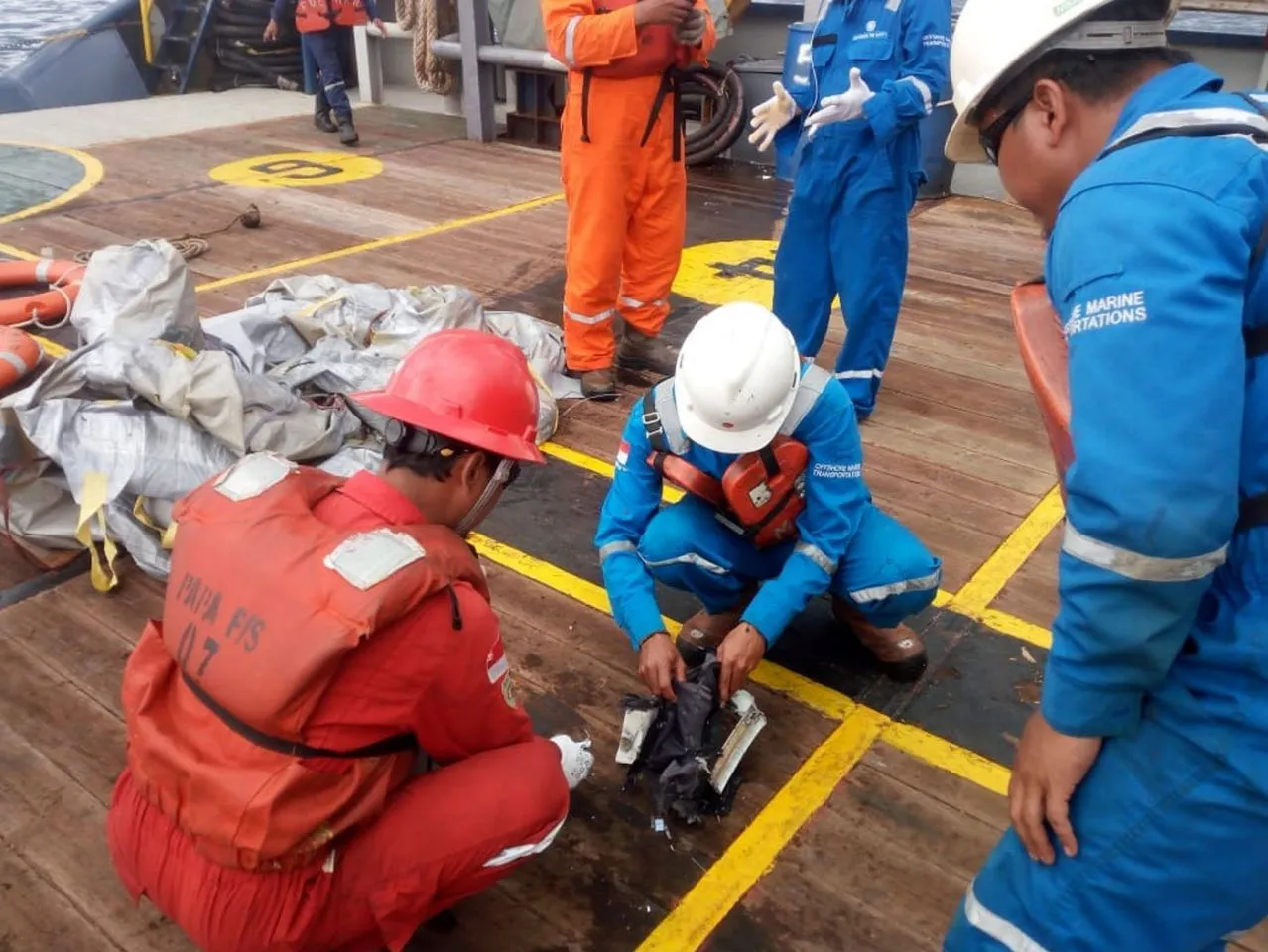
Searchers lose contact with second Lion Air black box
Nov 04, 2018

Search teams have lost contact with the second black box from the Lion Air flight that crashed into the sea. The device, which records flight data, is crucial for understanding the circumstances surrounding the tragic incident. Divers had previously located the first black box, which contains cockpit voice recordings, but efforts to retrieve the second one have faced challenges. Bad weather and strong currents have hampered search operations, raising concerns about the recovery timeline. Investigators stress the importance of both black boxes in piecing together the events leading up to the crash, as they aim to prevent future accidents.
The tragic Lion Air flight that crashed in October 2018 continues to haunt investigators and families alike as searchers face new challenges in locating the second black box. After the retrieval of the first black box, which contained critical flight data, the focus has now shifted to the second black box, which records cockpit voice communications. Unfortunately, search efforts have encountered significant obstacles, and the latest reports indicate that searchers have lost contact with the second Lion Air black box.
What Happened to the Second Black Box?
The second black box, officially known as the Cockpit Voice Recorder (CVR), is crucial for understanding the events leading up to the crash. It captures conversations between pilots, as well as sounds from the cockpit, which can provide invaluable insights into the decision-making processes during the flight. However, search operations have reported difficulties in maintaining a consistent signal with the device.
Search teams have been utilizing advanced sonar technology to locate the second black box, but the underwater geography and depth of the search area have posed challenges. The Lion Air flight crashed into the Java Sea, and the area is known for its complex underwater terrain, which makes it difficult for sonar equipment to locate the device accurately.
Challenges in Locating the Black Box
Several factors contribute to the challenges in locating the second Lion Air black box:
| Factor | Description |
|---|---|
| Water Depth | The crash site is located at depths reaching over 30 meters, complicating search operations. |
| Underwater Terrain | The uneven seabed can obstruct sonar signals, making it difficult to pinpoint the exact location of the black box. |
| Signal Loss | Once the black box is buried beneath debris or sediment, maintaining a signal becomes increasingly challenging. |
As search teams continue their efforts, they remain hopeful that advancements in technology and refined search techniques will lead to the successful retrieval of the second black box. The importance of this device cannot be overstated, as it holds the key to understanding the circumstances surrounding the crash.
The Importance of the Cockpit Voice Recorder
The Cockpit Voice Recorder is an essential tool in aviation safety investigations. It records various audio inputs, including pilot conversations, alarms, and other significant sounds that can help recreate the moments leading up to an incident. The information gathered from the CVR can be critical for:
- Identifying Human Errors: Understanding how pilot decisions and actions contributed to the accident.
- Improving Safety Measures: Implementing changes in training and procedures based on findings from the CVR data.
- Restoring Confidence: Providing transparency and accountability in aviation incidents to reassure the public.
Efforts to Enhance Search Operations
In light of the challenges faced, search teams are exploring new methodologies to improve the chances of recovering the second black box. Some of the efforts underway include:
| Effort | Description |
|---|---|
| Enhanced Sonar Technology | Investing in more advanced sonar systems that can better penetrate the seabed. |
| Collaboration with Experts | Partnering with underwater exploration specialists to deploy innovative search strategies. |
| Increased Resources | Allocating additional ships and equipment to expand the search area. |
The commitment to finding the second Lion Air black box reflects the aviation industry's dedication to safety and accountability. Each effort made in this search not only aims to uncover the truth behind the tragedy but also contributes to the broader goal of improving aviation standards worldwide.
Conclusion
The ongoing search for the second Lion Air black box remains a significant challenge, but the importance of this endeavor cannot be understated. With each passing day, the hope for closure for the victims' families and the aviation community continues to drive the search efforts. As technology evolves and search strategies improve, there remains a glimmer of hope that the second black box will be recovered, allowing investigators to piece together the final moments of the ill-fated flight.
In summary, the searchers' loss of contact with the second Lion Air black box highlights the complexities involved in underwater recovery operations. The aviation community watches closely, knowing that the findings from this black box could pave the way for safer skies in the future.
Related Articles

Explore Thailand: The Best Islands to Visit for Paradise, Adventure, and Relaxation

The Ultimate Guide to the Best Islands in Thailand for Your Next Getaway

Do babies need passports? How to get a passport for a newborn

How to get a U.S. passport fast: here’s how to expedite the process

What is Mobile Passport Control: 5 reasons why you should use it

SENTRI vs. Global Entry: A detailed guide

Do you need a passport to go to the Bahamas? Let’s find out

Do you need a passport to go to Mexico? A detailed guide

Do you need a passport to go to Canada? We got the answer

Do You Need a Passport for a Cruise: An Essential Travel Guide

Booster Seat Requirements: All the Rules to Follow in Your Rental Car

What Are the World’s Most Powerful Passports, and How Does Yours Rank?

How to Take a Passport Photo at Home: A Helpful Guide

You've got to have heart! Southwest's new livery

Your opinion: Should water be free on low cost carriers?

Young women bolder than guys as solo travellers
